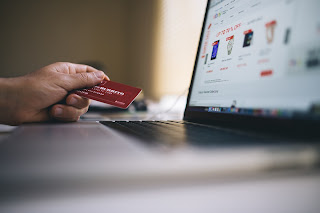Preparing for Study Abroad: Things You Must Know, Now!
You've chosen and been accepted to a fantastic study abroad programme, and you're now counting down the days before you go. Congratulations! You should start getting ready for the good things now. Questions about what to bring for a semester abroad? Should you get travel insurance? How should you manage your phone and money when you're away from home? If you're thinking about studying abroad, keep reading for some advice.
If you're reading this and thinking, "Visa?" then you should get your passport and visa(s) as soon as possible. When asked, "What visa?" (please open a new tab and research the visa requirements for the nation of your choice immediately). Make sure your passport has at least six months left before it expires. Check to see that it will serve you well long after you return from your semester abroad.
Make sure you have booked your classes, flights, and accommodations
While every study abroad experience is different, a large portion of them do consist of regular classes. Find out where you will be staying, what courses you will be attending, and when they will meet (to determine your commute). It's fantastic that you're taking a trip before the semester starts. It is essential that you have a flight booked to your study abroad location. Don't leave it to chance; it's crucial to the success of the vacation.
Follow the fluctuation of currencies closely
Many students consider living costs when choosing a country in which to study abroad, yet some of the most economically secure nations are also among the least expensive. If your home country has an extremely unstable economy, you shouldn't expect on the value of the US dollar to remain constant while you're studying overseas. When planning for weeks or months instead of days, the smallest adjustment may have a huge influence on your finances, and you may find yourself spending as much as you would in Western Europe in a place you once believed was inexpensive.
Prepare Your Finances
Financial planning matters alot. So if you are not going to distinguish your expenses, it will be hard to be ahead of your expenses. The first thing you should do is pick the right global card with multiple benefits, especially for students.
Keep an eye on the news in case there are any changes to your planned route
Whether the economy is collapsing, the public transportation system is crumbling, there are huge political upheavals, a health crisis is unfolding, etc., in the nation where you want to study abroad is important information to have. Don't freak out over every little thing; some of the finest locations to study abroad are in nations where the economy or government is changing.
There is no need to cancel your current arrangements to study abroad in order to incorporate new information. The worst thing that may happen is if the nation you are studying in suddenly shuts its borders, making it impossible for you to complete your study abroad programme. You will be covered by your student travel insurance if anything like this happens.
Sign up for the semester with the appropriate authorities in your native country
You'll soon be far away from home in a foreign country. There may be moments when you are completely alone, with no access to any kind of communication, including WiFi or a mobile signal. It's a risk worth taking to experience the thrill of studying abroad, but it also leaves you open to potential harm. You may be certain that the government is keeping tabs on you and knows how to reach you if an emergency arises.
Do not put off getting immunizations or checking with your doctor
You may be advised by your doctor to attend a travel clinic to get all the information you need to ensure your health while abroad. Make sure your medicines are covered by your health insurance provider by contacting them ahead of time and letting them know where you'll be going.




Comments
Post a Comment